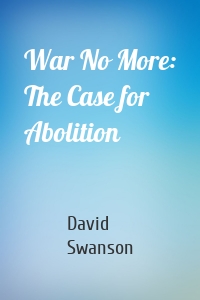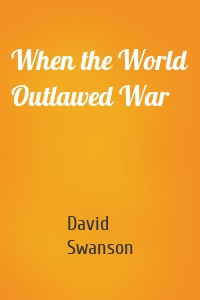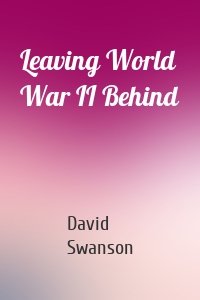David Swanson
3 кн.
War No More: The Case for Abolition
This book presents what numerous reviewers have called the best existing argument for the abolition of war, demonstrating that war can be ended, war should be ended, war is not ending on its own, and that we must end war.
| Автор | David Swanson |
When the World Outlawed War
This is a masterful account of how people in the United States and around the world worked to abolish war as a legitimate act of state policy and won in 1928, outlawing war with a treaty that is still on the books. Swanson's account of the successful work of those who came before us to insist that war be outlawed points us toward new ways of thinking about both war and political activism.
| Автор | David Swanson |
Leaving World War II Behind
This book documents the case that World War II happened in such a different world that it has little relevance to today's foreign policy, as well as the case that U.S. participation in WWII was not justifiable. Specifically, WWII was not fought to rescue anyone from persecution, was not necessary for defense, was the most damaging and destructive event yet to occur, and would not have happened had any one of these factors been missing: World War I, the manner in which WWI was ended, U.S....
| Автор | David Swanson |




